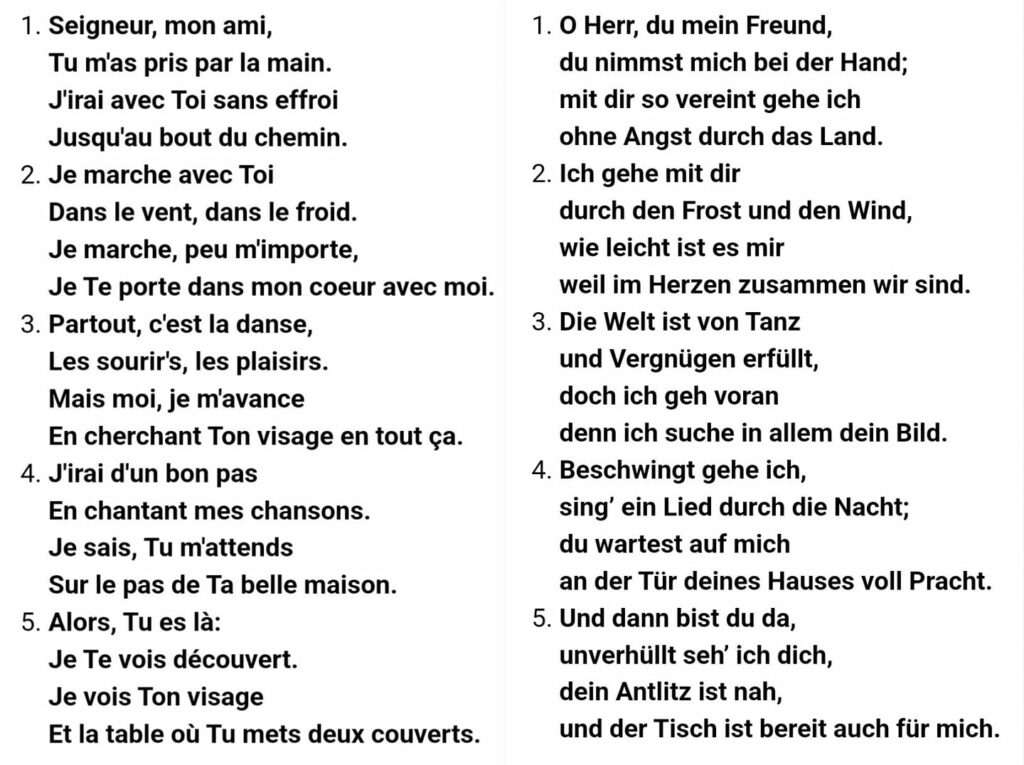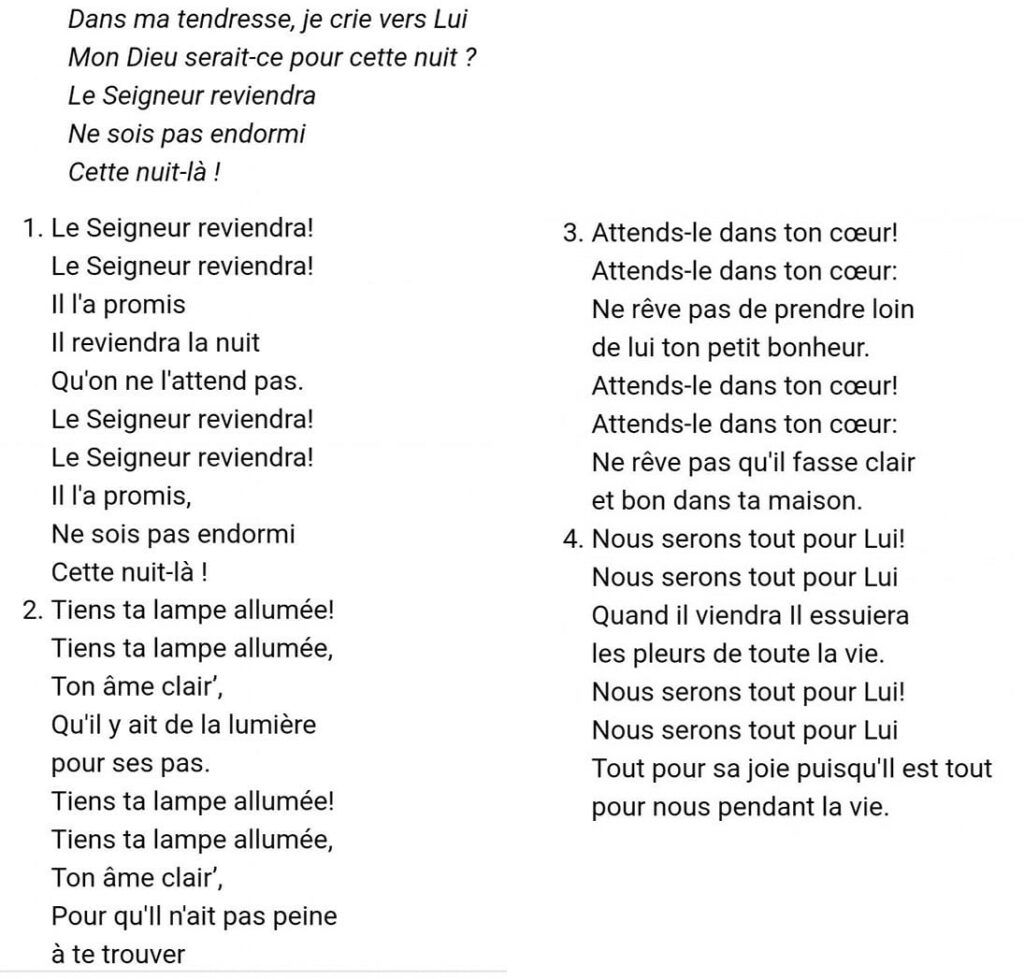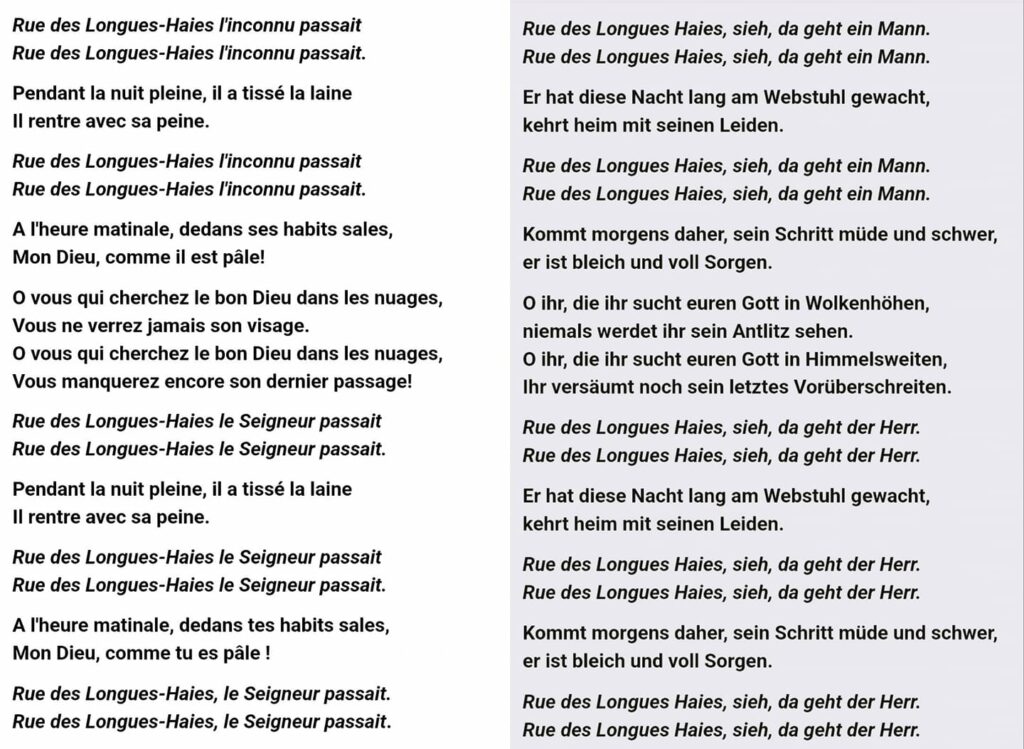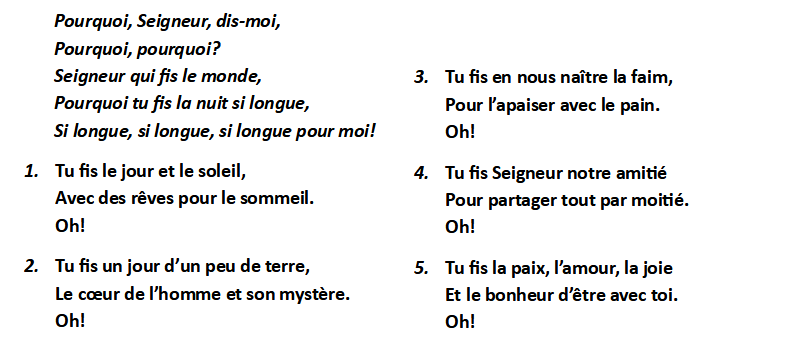Père Aime Duval — ein Teil meiner Kindheitserinnerungen
Aufgrund meiner aktuellen Bettlägrigkeit habe ich gerade viel Zeit und so bin ich bin beim Stöbern im Internet auf Père Aimé Duval gestoßen, dessen Lieder zu meinen Kindheiterinnerungen gehören. Die Schallplatten gehörten meinem Vater, und ich habe damals die Texte gar nicht verstanden1, aber seine Art zu singen hat mich beeindruckt.
Ich habe viele seiner Lieder auf YouTube und auch Spotify gefunden, und habe sie mir heute, nach vielen Jahren, wieder angehört. Inzwischen kann ich etwas Französisch, habe mir aber zum Verständnis der Texte Unterstützung durch Online-Liedtexte und Google Translate gesucht, denn ich finde es viel schwieriger, gesungenes Französisch zu verstehen, als langsam gesprochenes. Siehe da, die meisten Lieder finde ich auch heute, als inzwischen evangelikaler Christ, noch immer sehr ansprechend.
Vielleict auch weil seine Lieder aus einer anderen Zeit stammen (späte 1950er, frühe 1960er) sind Père Duvals Lieder im Gegensatz zu vielen heutigen christlichen Liedern nicht nett und fromm, keine Wohlfühl-Lieder, sondern handeln von Menschen mit ihren Sorgen, wie wir Christus in ihnen sehen, und wie sie ihm in uns begegnen sollen.
Père Duval starb im April 1984; heuer im April hat die „Deutsche Welle“ diesen Nachruf veröffentlicht.
Hier sind ein paar seiner Lieder:
Seigneur, mon ami (existiert auch auf Deutsch als O Herr, du mein Freund)


Le Seigneur reviendra (Der Herr wird wiederkommen, leider nicht Deutsch)


Rue des longes haies (auch auf Deutsch mit gleichem Titel)


La Nuit (Pourquoi?) (Die Nacht (Warum?) — leider nicht auf Deutsch


- Mein Vater hat die Texte wohl auch nicht verstanden, aber er war sehr aktiv in der Katholischen Arbeiterjugend (KAJ) mit Verbindungen zur französischen Jeunesse ouvrière chrétienne (JOC), und kam auf diesem Weg an die Schallplatten. Ich stieß später auf deutsche Übersetzungen einiger Lieder.[↩]

